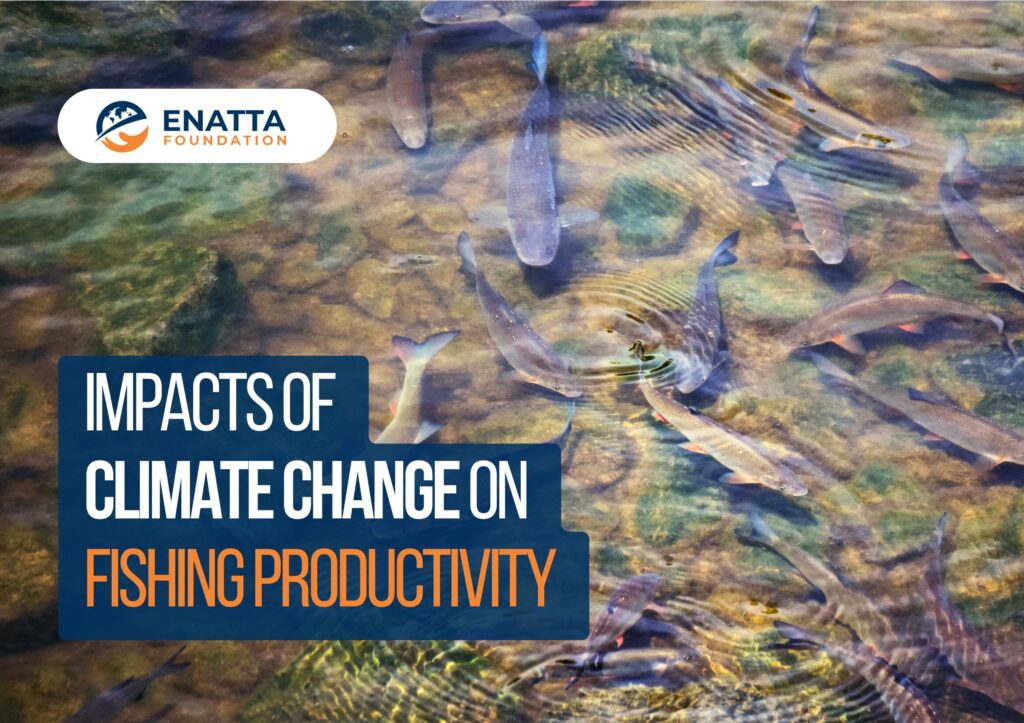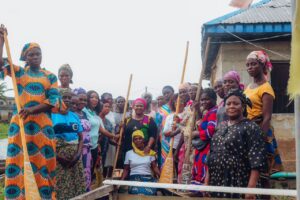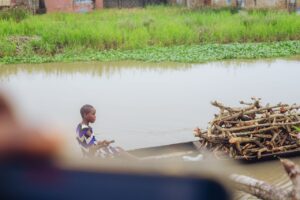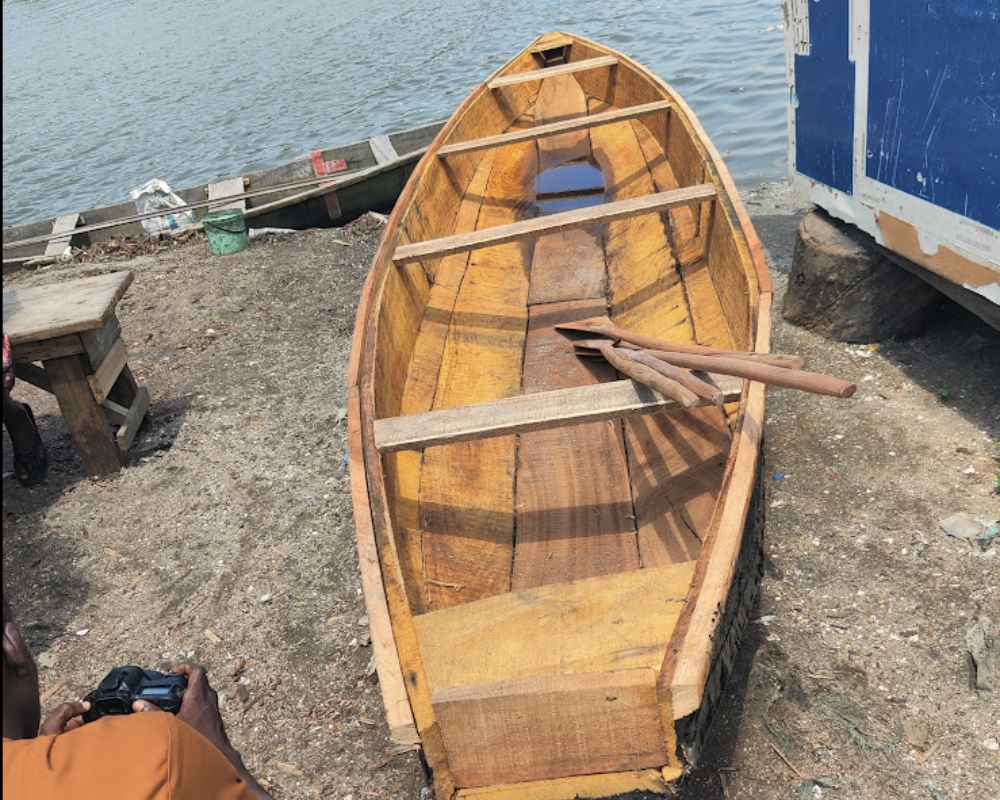
Impacts of Climate Change on Fishing Productivity
In Nigeria, artisanal fishery covers a pivotal mass of the Nigerian economy, provides employment for a large number of the Nigerian population and supplies about 81.9% of the total domestic fish production. However, the impact of climate change on fish species is on the increase. This change affects the distribution of fish in terms of size, habitat, diversification and productivity. Nonetheless, it is pertinent to note that climate change interacts with other pressures such as pollution and overfishing to create diverse threats to fish productivity in the country. Studies have shown that alterations in hydrology, coastal dynamics and temperature, among others, affect fish populations and the communities that are dependent on them for livelihood. These climate conditions are expounded in this article.
One of the principal biophysical drivers that alter fish productivity is the rising water temperatures. Rising global temperatures often caused by greenhouse gas emissions (the release of gases into the atmosphere that trap heat and contribute to global warming) affect fisheries through the distribution of species, such that several species of fish migrate to cooler waters. This could lead to a reduced reproduction of fish and other aquatic organisms and even open them up to diseases and parasites. Warmer waters also reduce dissolved oxygen levels, creating suboptimal conditions that depress growth and increase mortality among oxygen sensitive species like fish.
Also, altered rainfall patterns have had considerable impact on fish productivity in the country. These seasonal changes in the discharge of freshwater have been associated with shifts in the abundance of fish across wet and dry seasons. For instance, Lagos State, one of Nigeria’s riverine states, is host to many fishing communities and contributes greatly to Nigeria’s fishing industry. Nonetheless, its fishing communities are victims of intense climate conditions that hamper productivity. Recently, there seemed to be an “exchange” in climate conditions between July and August, 2025. While the former is usually associated with rainfall, and is a perfect month for shrimp harvesting, the latter is usually windy with lesser frequency of rainfall. This windy break before the rains continue in September is known as “August Break”. However, in July, Lagos experienced more windy days than rainy days and presently in August, we have had more rainy days than in previous years. This seeming climate shift has had implications for fisherwomen in the fishing communities we cater to; there were complaints about lower fish/shrimp yield in July due to this modification in rainfall.
Ocean acidification is another effect of climate change that directly results from growing CO2 (carbon dioxide) levels in the atmosphere, and as expected, it presents considerable danger to aquatic life. Species having calcium-carbonate building components, such as shellfish, are especially vulnerable. In addition, fish migratory patterns and interactions between predators and prey may be affected by acidification. In Lagos, coastal areas are faced with low productivity and changing physical conditions for aquatic bodies due to shifts in chlorophyll and nutrient dynamics. It goes without doubt that Nigeria’s fisheries may be further impacted by the influence of ocean acidification on fish and other aquatic creatures, which may lead to lower fishing yields and changed marine ecological systems.
Furthermore, the variations in water currents and sea levels could have a significant influence on productivity in this industry. Sea levels have risen greatly in the twenty-first century due to change in climate conditions. According to Climate.gov, global average sea level has risen 8–9 inches (21–24 centimeters) since 1880. Similarly, global average sea level set a new record high: 101.4 mm which is 3.99 inches above 1993 levels in 2023. This change in sea levels affects fish farming and even coastal fish farming equipment may be altered especially when used in relatively low-lying locations. As sea levels rise, habitat loss is exacerbated, there is increased saltwater intrusion into freshwater systems and displacement of fishing settlements. The degradation of these habitats directly reduces the carrying capacity of nearshore fisheries and complicates the implementation of adaptive measures by local fishers.
Socio-economic Outcomes and Recommendations
It is pertinent to note that there are crucial ramifications when changing ecosystems impact fish supplies. These outcomes are critical for artisanal fishers, particularly fisherwomen who are the target focus of Enatta Foundation. Changes in climate conditions have led to reduced revenue for fishing communities, increased food prices and overall shifts in livelihood strategies. For instance, fisherwomen in the Ajegunle fishing community who were beneficiaries of Enatta Foundation’s Boat Project (in which we distributed boats to target fishing communities), currently make use of the boats to collect firewood as an alternative means of livelihood following the climate impact on fish and aquatic bodies in their lagoons. Moreover, women who engage in post fish harvest activities and small-scale processing are vulnerable to disruptive changes in their supply, as well as the loss of processing facilities from flooding. This decline in productivity consequently affects food security and the resilience of riverine communities not only in Lagos state, but across Nigeria.

Boat Commissioning at Ajegunle Landing Site by Enatta Foundation Officials

Firewood as Alternative Means of Livelihood
Due to their vulnerability, these communities require adaptable policies and management strategies which combine mitigation and sustainable resource management in order to combat the menace of climate change. As a mitigation strategy, national efforts to reduce greenhouse gas emissions are essential to preventing the long-term effect of fish decline across the country. Furthermore, actions such as protecting mangroves and wetlands, improving water quality through appropriate urban runoff management in cases of flooding and developing climate resilient post-harvest infrastructure are resourceful ways of addressing this problem. These effective responses will require sustained scientific monitoring and participatory management with coastal communities and cross sectoral policies from government agencies that combine habitat protection and adaptive livelihoods support for long-term impact. In all, a detailed understanding of how aquatic systems and climate change interact through further research, as well as the execution of adaptive strategies are bound to ensure the long-term survival of artisanal fishery in Nigeria.
is a non-profit organization birthed from the initiatives of Enatta Foods Ltd, a food production and export company in Lagos state committed to trends in agriculture export business and educating people about opportunities within the sector.
Our Process
- Choose your favourite cause
- Register to our website
- Donate the amount you like
- Stay tuned about cause

Leave a Reply